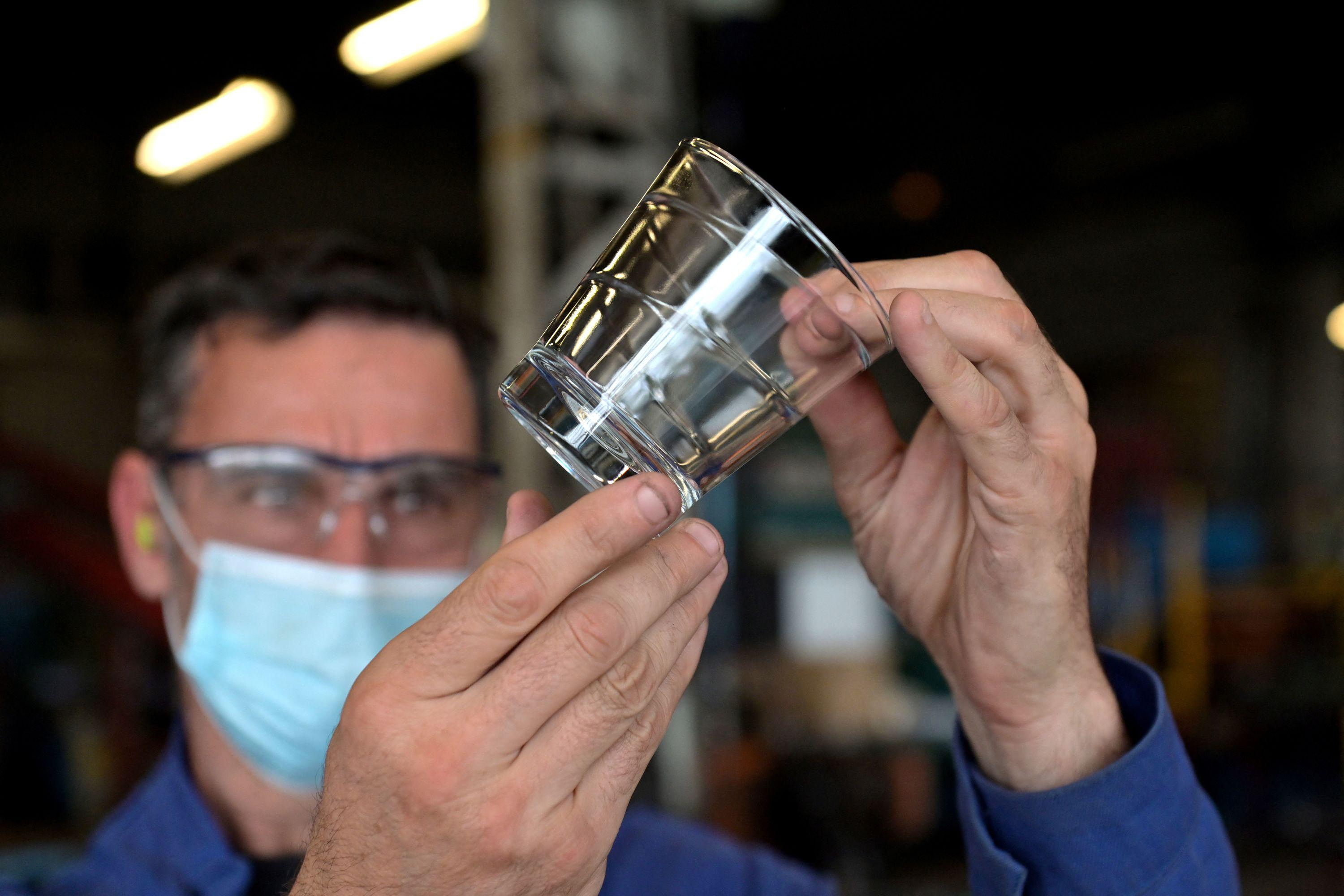Actually, it is a good news: The air in Switzerland is always better. The concentration of many health-relevant pollutants reached in the year 2018 low values. This shows a new report by the Federal office for the environmental (FOEN). The authority operates a network of measuring stations – both in cities as well as in the country, in the lowlands and in the mountains.
Particularly striking was the decrease in the fine dust, in addition to ozone and nitrogen a of the conductive layers adstoffe oxides. In the meantime, all of the fine dust of the measurement locations of the FOEN are below the limit value only in the city of Bern, the values are still too high. Be measured all the particles and particles, which are smaller in diameter than a hundredth of a mm – PM10 experts call this fine dust category.
But also even smaller particles floating around in the air. In June 2018, the policy has also been introduced for particles four times smaller than PM10, a limit value. Currently, the cities of Basel, Bern, Lugano and Zürich are still in the year just above the limit value of PM2. 5. However, the reduction since the beginning of the Measurement is striking.
It shows no positive effect on the public health
fine dust can arise in industry or in agriculture, one of the main sources, however, is the motorized traffic. The fine particles are emitted from combustion processes in the engines free – a large part of the particulate matter in the air Russ. Fine particles can also be formed as a mechanical abrasion of tires and brakes. And it is also possible that gaseous pollutants can connect to fine dust particles.
are so pleasing to the measured values in Switzerland – have a positive effect on people's health. Absurdly, the opposite is the case: The Swiss are due to bad breath of air always sicker.
A March study published by the Max-Planck-Institute for chemistry in Germany, the number of premature deaths in Switzerland estimated due to air pollution per year to more than 8500. Yet, until recently, a number of around 2200 of such deaths was for Switzerland as a realistic estimate.
it is Undisputed that dirty and contaminated air can have serious health consequences – in particular, in the case of a long-term burden. So, it comes because of dirtier air, more lung cancer and heart attacks, to cases, ultimately, more death. And also the incidence of respiratory diseases such as Asthma is on the rise.
Meltem Kutlar Joss directs the documentation centre for air pollution and health (Ludok) at the Swiss tropical and Public Health Institute in Basel. She is not amazed whether the discrepancies: In the case of such studies, it was were estimated with different output. Consequently, there is always a certain degree of variation in the Figures.
but it also says: "in Principle, it is so, that today we know a lot more about deaths in connection with poor air. Therefore, more and more death can be assigned to cases of a particular cause." In fact, air pollutants are probably more diseases. It is quite possible that the number of 8500 dead will be soon screwed up once more. According to Kutlar studies, "what is the relationship of the long-term air pollution with the incidence of Diabetes observed increase, for example,".
scientists found that ultra-fine particles in rat brains
debt-be it a phenomenon that is known in Switzerland only experts could be called particles as small as viruses, in the jargon of ultra-fine dust.
"We suspect that it is precisely the ultra-fine can favour the dust of neurodegenerative diseases such as dementia, Alzheimer's and Parkinson's," says Nicole Probst-Hensch, explored as an epidemiology Professor at the Swiss tropical and Public Health Institute, Basel "people's diseases".
Because the coarser the particles in the breathing air, the more likely they can be coughed from the lungs out. The finer they are, the deeper they penetrate into the pulmonary alveoli. And from there they enter the bloodstream. According to Probst-Hensch, chronic inflammation, which can trigger many diseases.
In experiments with rats, researchers demonstrated the ultra-fine dust in the brain and the liver. In the United States, scientists examine, therefore, whether the particles can be a risk factor for autism, or schizophrenia.
The FOEN is also a measuring system operates for the ultra-fine dust. The good news: because of the decline in recent years. However, there is no limit. "The scientific results are still very meaningful, as that one could make to the harmfulness of reliable statements," says Richard Ballaman, head of section, air quality to the FOEN. The existing limit values for fine dust would be sufficient. Finally, measurements showed that diesel particulate filters the emissions from the ultra fine would reduce dust.
The bad air is almost as deadly as tobacco smoke.
This is the opinion of the Swiss "particle filter Pope" Andreas Mayer does not share, however. His research is thanks to the national accident insurance Fund Suva issued in the year 2000 in Switzerland, a Mandatory particle filters for diesel engines in tunnel construction. The Swiss Swiss cancer League prize awarded him in 2006 the recognition.
Mayer said: "The particles which left the vehicles in the transport direction, are getting smaller and smaller, and thus more dangerous. For this reason, it is important that Switzerland dust in the breathing air is also introducing the ultra fine a limit." The current limit values for fine dust would not consider this "dangerous proportion of adequately and, therefore, the health risk in any way take account of".
How harmful air pollution, shows the comparison with the tobacco consumption, according to the Federal "largest public health Problem". Annually 9500 people die prematurely because they smoked. The bad air is almost as deadly as tobacco smoke. Researcher Kutlar is not surprised: In Switzerland, around a third of adults smoke. "From the air pollution, however, is a life-long all of the 8.4 million people are affected."
This Text is from the current issue. Now all of the articles in the E-Paper of the Sunday newspaper, read: App for iOS App for Android – Web-App (Sunday newspaper)
Created: 20.04.2019, 23:33 PM

 Germany: abortions should be authorized up to 12 weeks, concludes a commission launched by Olaf Scholz
Germany: abortions should be authorized up to 12 weeks, concludes a commission launched by Olaf Scholz Knife attack in Australia: who are the two French heroes congratulated by Macron?
Knife attack in Australia: who are the two French heroes congratulated by Macron? Faced with an anxious Chinese student, Olaf Scholz assures that not everyone smokes cannabis in Germany
Faced with an anxious Chinese student, Olaf Scholz assures that not everyone smokes cannabis in Germany In the Solomon Islands, legislative elections crucial for security in the Pacific
In the Solomon Islands, legislative elections crucial for security in the Pacific Covid-19: everything you need to know about the new vaccination campaign which is starting
Covid-19: everything you need to know about the new vaccination campaign which is starting The best laptops of the moment boast artificial intelligence
The best laptops of the moment boast artificial intelligence Amazon invests 700 million in robotizing its warehouses in Europe
Amazon invests 700 million in robotizing its warehouses in Europe Inflation rises to 3.2% in March due to gasoline and electricity bills
Inflation rises to 3.2% in March due to gasoline and electricity bills Against drug trafficking, the mayor of Amsterdam advocates the regulation of cocaine
Against drug trafficking, the mayor of Amsterdam advocates the regulation of cocaine Hachette Livre removes Isabelle Saporta from management of Fayard
Hachette Livre removes Isabelle Saporta from management of Fayard Where is the MSC Aries, the ship boarded by Iran?
Where is the MSC Aries, the ship boarded by Iran? Denis Olivennes at Le Figaro: “CMI France discusses with Natacha Polony the future of Marianne”
Denis Olivennes at Le Figaro: “CMI France discusses with Natacha Polony the future of Marianne” 2024 Candidates Chess Tournament: Relive the Crucial Nepo-Gukesh Game
2024 Candidates Chess Tournament: Relive the Crucial Nepo-Gukesh Game Borgo, by Stéphane Demoustier: locked outside
Borgo, by Stéphane Demoustier: locked outside Release of hostages and immediate ceasefire: at the Venice Biennale, the Israeli pavilion resonates with Gaza
Release of hostages and immediate ceasefire: at the Venice Biennale, the Israeli pavilion resonates with Gaza Two Russian artists declared “terrorists and extremists” because of a play
Two Russian artists declared “terrorists and extremists” because of a play Skoda Kodiaq 2024: a 'beast' plug-in hybrid SUV
Skoda Kodiaq 2024: a 'beast' plug-in hybrid SUV Tesla launches a new Model Y with 600 km of autonomy at a "more accessible price"
Tesla launches a new Model Y with 600 km of autonomy at a "more accessible price" The 10 best-selling cars in March 2024 in Spain: sales fall due to Easter
The 10 best-selling cars in March 2024 in Spain: sales fall due to Easter A private jet company buys more than 100 flying cars
A private jet company buys more than 100 flying cars This is how housing prices have changed in Spain in the last decade
This is how housing prices have changed in Spain in the last decade The home mortgage firm drops 10% in January and interest soars to 3.46%
The home mortgage firm drops 10% in January and interest soars to 3.46% The jewel of the Rocío de Nagüeles urbanization: a dream villa in Marbella
The jewel of the Rocío de Nagüeles urbanization: a dream villa in Marbella Rental prices grow by 7.3% in February: where does it go up and where does it go down?
Rental prices grow by 7.3% in February: where does it go up and where does it go down? Europeans: the schedule of debates to follow between now and June 9
Europeans: the schedule of debates to follow between now and June 9 Europeans: “In France, there is a left and there is a right,” assures Bellamy
Europeans: “In France, there is a left and there is a right,” assures Bellamy During the night of the economy, the right points out the budgetary flaws of the macronie
During the night of the economy, the right points out the budgetary flaws of the macronie Europeans: Glucksmann denounces “Emmanuel Macron’s failure” in the face of Bardella’s success
Europeans: Glucksmann denounces “Emmanuel Macron’s failure” in the face of Bardella’s success These French cities that will boycott the World Cup in Qatar
These French cities that will boycott the World Cup in Qatar Bundesliga: Naby Keita suspended by Werder Bremen until the end of the season
Bundesliga: Naby Keita suspended by Werder Bremen until the end of the season Euro 2024: the Blues reveal their opponents for friendlies in June
Euro 2024: the Blues reveal their opponents for friendlies in June Cycling: De Marchi wins the 2nd stage of the Tour of the Alps
Cycling: De Marchi wins the 2nd stage of the Tour of the Alps Paris Olympics 2024: Joris Daudet (BMX) candidate to be French flag bearer
Paris Olympics 2024: Joris Daudet (BMX) candidate to be French flag bearer


















